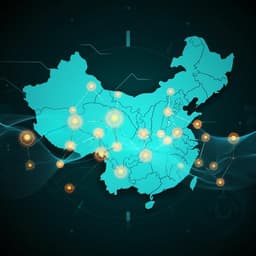
Transportation
Power supply disruptions deter electric vehicle adoption in cities in China
Y. (. Qiu, N. Deng, et al.
Discover how power outages in China are influencing electric vehicle adoption rates! This research, conducted by Yueming (Lucy) Qiu and colleagues, reveals a startling connection between power infrastructure failures and the decline of EV adoptions, potentially hindering carbon reduction efforts for years to come.
Playback language: English
Related Publications
Explore these studies to deepen your understanding of the subject.







